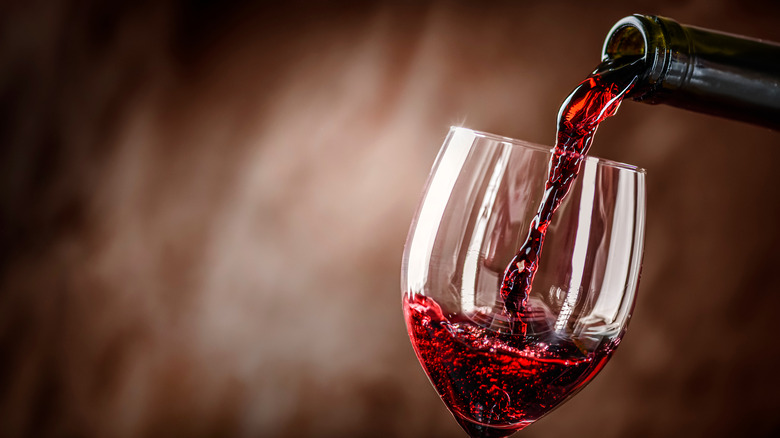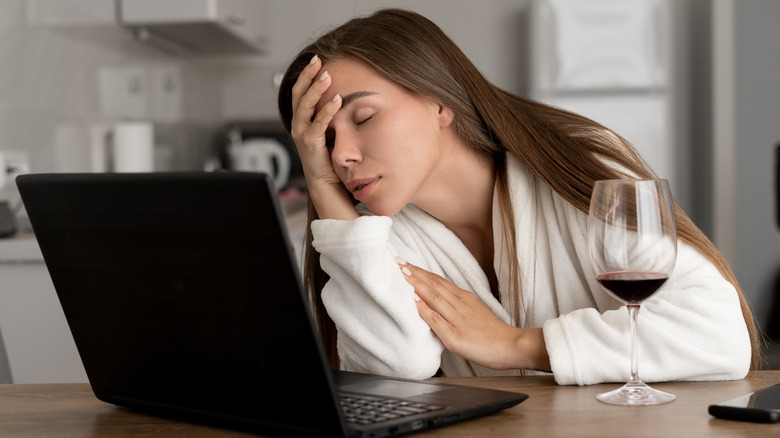Here's Why Red Wine Could Be Making You Sleepy
We may receive a commission on purchases made from links.
You've probably heard about the benefits of having a glass of red wine. It's packed full of antioxidants. It can help you manage your cholesterol levels. It keeps your heart working in tip-top shape. It can help you deal with the common cold. Then there's fact that red wine's resveratrol can help you manage your weight — as long as you control the amount you consume, that is (per Whitehall Lane).
And while you may hear people talk about how groggy they might feel after a glass of red wine, you might have just assumed it was because the alcohol acts as a relaxant of some kind. But as it happens, there's more to it than we thought. Vandana Sheth, RDN, CDCES, FAND, registered dietitian nutritionist and author of "My Indian Table: Quick & Tasty Vegetarian Recipes," tells Mashed that red wine contains something we're more used to seeing in our medicine cabinets than in our booze. "Red wine is higher in tannins and melatonin (from the red grape skins)," she says.
That's not all. "Melatonin is the natural sleep hormone that is found in grape skins. Eating grapes may be helpful as a nighttime snack to assist with sleep. However, when you have wine, you are getting a combination of the alcohol as well as melatonin that can make you feel more tired and sleepy," Sheth says.
Drinking red wine doesn't always result in restful sleep
Indulging in red wine to help you sleep has pitfalls, too. As Vandana Sheth, RDN, CDCES, FAND, tells Mashed, "red wines tend to be higher in alcohol by volume which can have a sedative effect. However, the sleep quality is affected and may lead to a disrupted night of sleep."
There's another reason not to turn to red wine as a sleepytime supplement instead of reaching for the melatonin. As Youbeauty points out, while a glass of red wine might have 60 to 120 nanograms of melatonin, a pill can have as much as 10,000 times that amount.
So, how can you take advantage of dietary changes for better sleep? "It's important to first establish a good sleep routine to assist with sleep. I often help my clients build good sleep habits and may suggest drinking herbal tea or a 'moon milk' (warm beverage made with ingredients that may help with sleep such as tart cherry juice or lavender)," Sheth explains. "If you are still having a hard time, melatonin may be a good supplement to consider. However, it is important to discuss this with your physician to ensure that it does not interact with any medications." There you have it — there are better ways to get some shut-eye than pouring a glass of wine.

